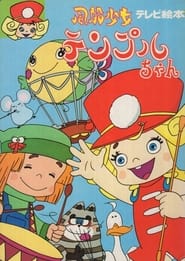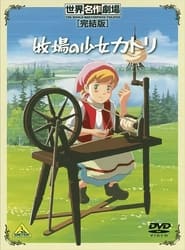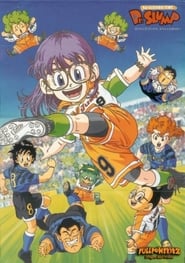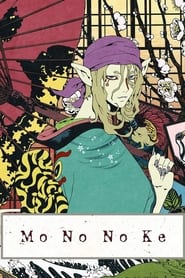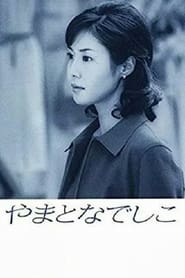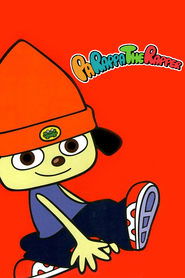Fuji Tv TV Series - Page 11
-
Ai Yori Aoshi
2002
star 7.7Kaoru is a college boy with everything going for him. He lives in a mansion with his beautiful fiancé, Aoi, all his roommates are babes, and they all have the hots for him. There’s just one hitch: due to family complications, Kaoru and his beloved have to keep their engagement a secret. As he gets tangled in countless steamy situations, can Kaoru overcome temptation and stay true to the lovely Aoi? -
Metallic Rouge
2024
star 7.2In a world where humans coexist with androids called Neans, a group known as the Immortal Nine rises up against society. Tasked with disposing of the revolters, a Nean named Rouge Redstar (aka Metal Rouge) and investigator Naomi Orthmann head to Mars to track them down…but first, Rouge wants some chocolate. -
AnoHana: The Flower We Saw That Day
2011
star 8.3When Yadomi Jinta was a child, he was a central piece in a group of close friends. In time, however, these childhood friends drifted apart, and when they became high school students, they had long ceased to think of each other as friends. One of the friends from that group, Honma Meiko, now has a wish she asks Jinta to fulfil. The problem is, she can't remember what her wish is anymore. -
Tsuide ni Tonchinkan
1987
star 6A gang decides to play at burglary without the knowledge of their schoolmates, each masquerading at different times as the master thief Tonchinkan. -
Kansatsui Asagao
2019
star 8.2Asagao (Juri Ueno) is a rookie forensic scientist, who works at a university forensic medicine class in Kanagawa Prefecture. She is a licensed doctor and respected by those around her. Asagao lives with her father Taira (Saburo Tokito), who is a veteran detective. Asago's mother died in the 2011 Tohoku earthquake disaster and her mother’s body was never found. One day, Asagao’s forensic medicine class unexpectedly works with the investigation section of the police department. When a dead body is found, the dead body is transferred to Asagao’s forensic medicine class. Asagao now works with her detective father. -
Given
2019
star 8.6Tightly clutching his Gibson guitar, Mafuyu Satou steps out of his dark apartment to begin another day of his high school life. While taking a nap in a quiet spot on the gymnasium staircase, he has a chance encounter with fellow student Ritsuka Uenoyama, who berates him for letting his guitar's strings rust and break. Noticing Uenoyama's knowledge of the instrument, Satou pleads for him to fix it and to teach him how to play. Uenoyama eventually agrees and invites him to sit in on a jam session with his two band mates: bassist Haruki Nakayama and drummer Akihiko Kaji. -
Scum's Wish
2017
star 6.5Seventeen-year-old Mugi Awaya and Hanabi Yasuraoka appear to be the ideal couple. They are both pretty popular, and they seem to suit each other well. However, outsiders don't know of the secret they share. Both Mugi and Hanabi have hopeless crushes on someone else, and they are only dating each other to soothe their loneliness. Mugi is in love with Akane Minagawa, a young teacher who used to be his home tutor. Hanabi is also in love with a teacher, a young man who has been a family friend since she was little. In each other, they find a place where they can grieve for the ones they cannot have, and they share physical intimacy driven by loneliness. Will things stay like this for them forever? -
Katri, Girl of the Meadows
1984
star 6.4Katri, Girl of the Meadows is an anime series based on the Finnish novel, "Paimen, piika ja emäntä" by Auni Nuolivaara. The series was broadcast originally in Japan in 1984 as part of the children's anthology series World Masterpiece Theater, also known simply as "Meisaku" from Nippon Animation. The anthology had before and after produced a great variety of animated series based on different children's novels from around the world; among them were "My Annette: Story of the Alps" and "Little Princess Sara". In Europe, where "World Masterpiece Theater" series have found huge success, "Katri, Girl of the Meadows" made its way to different countries including Spain, Italy, France and Germany. The series has never been broadcast or published in Finland where it remains mostly unknown. -
The Heike Story
2022
star 7.7A young orphan named Biwa is taken in by the powerful Taira Clan—also known as the Heike—after their leader witnesses her extraordinary psychic abilities. Unfortunately, what she predicts is a future of bloodshed, violence, and civil war. Inspired by the 12th-century epic tale Heike Monogatari. -
Dr. Slump
1997
star 7.8The Dr. Slump remake, simply titled Dr. Slump, is the second anime adaption which is an alternate retelling of the original Dr. Slump manga. This second series ran for 74 episodes from November 26, 1997, to September 22, 1999. This series gives all of the characters a new design, as well as having references and appearances from the Dragon Ball series. This 1997 series has one film based on it, titled Dr. Slump: Arale's Surprise. On April 7, 2018, a trailer of an English dub for Doctor Slump surfaced on YouTube but was taken down by the user. It is still unknown who made the dub and if other video sharing sites have the trailer. -
Miracles
2018
star 6.3A comical and heartwarming drama about a university lecturer on animal behavior who just loves all living creatures. Once he starts thinking about them, he becomes too absorbed to care about anything else! People think he is quite odd and eccentric! But gradually his attitude, free from restrictions of rigid common sense and social norms, changes the way of thinking of those around him. They can recall a time when they, too, were engrossed in something they loved. -
Don Quijote
1967
-
Mononoke
2007
star 7.8The Medicine Seller is a deadly and mysterious master of the occult who travels across feudal Japan in search of malevolent spirits called mononoke to slay. When he locates one of these spirits, he cannot simply kill it; he must first learn its Form, its Truth, and its Reason in order to wield the mighty Exorcism Sword and fight against it. He must begin his strange exorcisms with intense psychological analysis and careful investigative work—an extremely dangerous step, as he must first confront and learn about the mononoke before he even has the means to defeat it. -
Kita no kuni kara
1981
star 9Set in the town of Furano in Hokkaido, Kita no Kunikara centers around the story of the Kuroita family. -
Perfect Woman
2000
star 7Matsushima Nanako grew up in a very poor family and is thus determined to marry a rich man so that she will never have to go through poverty ever again, and is named the "gokon queen" in her quest to find her man. Tsutsumi Shinichi is a brilliant academic (Fields prize winner - Nobel Prize equivalent in Mathematics) who gave up his studies to take over his deceased father's fish-shop. They meet through a doctor's "gokon" (group date) and she falls in love with him under the mistaken assumption that he is a very rich man -
Ristorante Paradiso
2009
star 6.7When she was a child, Nicoletta was taken in by her grandmother so that her mother could remarry. Now grown up, she leaves everything in the countryside behind to visit her mother and her mother's second husband, a ristorante owner. To her surprise, her stepfather did not know his wife had a daughter! Delicious food and dreamy gentlemen await at the ristorante, casetta dell'orso. For everyone who works there, a tender connection to the hearts of each visitor is spun, and the curtain raises on a story about these first-rate Italian gentlemen in spectacles. -
PaRappa the Rapper
2001
star 5.7The series focuses on PaRappa, a cute and happy dog who enjoys music and dancing and often spends time with his friends PJ Berri, Katy Kat, and the girl of his dreams, Sunny Funny. Along with various characters who make returning appearances from the video games, the anime introduces several new characters who are exclusive to the TV series. These include Matt Major, PJ's friend from Club Fun, Paula Fox, Sunny's friend who was rivals with Katy, Pinto, PaRappa's little sister, and Gaster and Groober, a villainous duo who cause all sorts of mischief. -
Asu no Hikari wo Tsukame
2010
"Tanpopo Farm," a facility overlooking the ocean, offers rehabilitation for troubled youth—those from reform schools, bullied individuals, and those dealing with addictions. Kitayama Shuji, who runs the farm, faces rejection from the town and even his daughter but remains committed to helping these young people heal. The story unfolds as Sakuragi Tsubasa arrives at Tanpopo Farm and meets Sawaguchi Haruka, a popular high school basketball player. Despite her bright exterior, Haruka faces betrayal from her mother, opposition from her father (a City Council member against the farm), and bullying at school. Through their bond, Tsubasa and Haruka find solace and begin to develop deeper feelings for each other.








